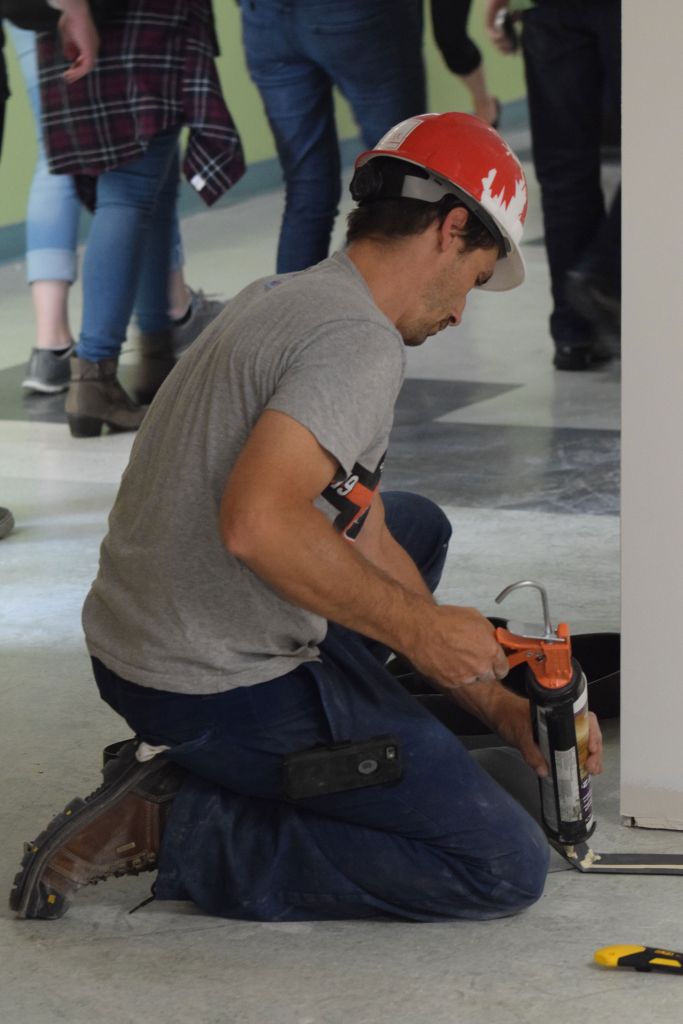As the first Canadian college to sign the Talloires Declaration, an international commitment environmental sustainability, Algonquin already set the standard for eco-friendly campuses. However, being a leader in sustainability is not enough as administrators have implemented a battery of plans to make this college even greener.
Central to most of these plans is the construction the Energy Innovation Centre in C-Building. The centre is not only a hub for new courses and programs but also home to a co-generation power plant.
The facility is able to burn resources like natural gas to generate up to two megawatts of electricity. A production as large this allows “the campus to meet all electrical loads even if Ottawa hydro is down,” states Jason Juurlink, a member of the Algonquin College Green Team. Any heat during this entire generation process is also recycled to be used for heating or air conditioning for the building.
“The cogen plant is more efficient than the older systems,” says Juurlink.
Students will be able to take direct advantage of the energy storage as there will be a charging stations outside the Innovation Centre for electric cars. Juurlink feels that “the Innovation Centre is a great way to get students engaged.”
All this electricity is reserved in various energy storages on site, such as a Tesla Wall, which accumulates solar energy during the day, and distributes it as electricity in the evening.
The energy stored in these facilities is regulated by a microgrid controller, a computer system that maintains and optimizes the electricity.
With the immediate success of the cogeneration plant, Algonquin is already looking to take things one step further. The school is also looking to gain a second two-megawatt generator, which will allow for even more sustainable power generation. It is only a matter of time until its construction as federal funding awaited.
The Energy Innovation Centre also lights the way for the energy management program. The program is designed for post-secondary graduates and offers them a graduate certificate to complement their degree or diploma.
While it may seem as if Algonquin has done all it can to be an institution that keeps sustainability a priority, there is always room for improvement. Sarah Dehler, the sustainability coordinator for the college, feels that there is much more that can be done to educate students on sustainable living at school and in their personal lives.
Dehler maintains that students should be taught practices that are “not only applied but real world too.” Her ideas for sustainability education range from co-curricular models to program integration.
Regardless of how green the campus is, in terms of students’ environmental literacy, “We’ve only scratched the surface,” says Dehler.


